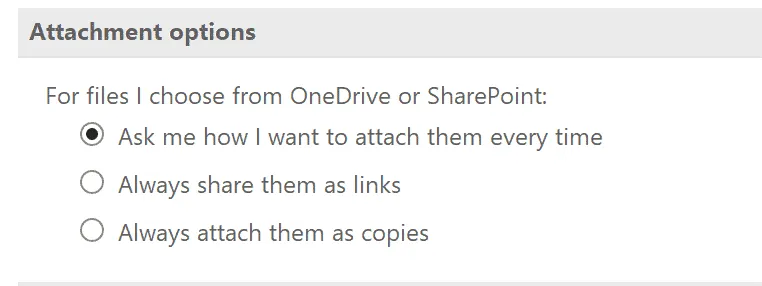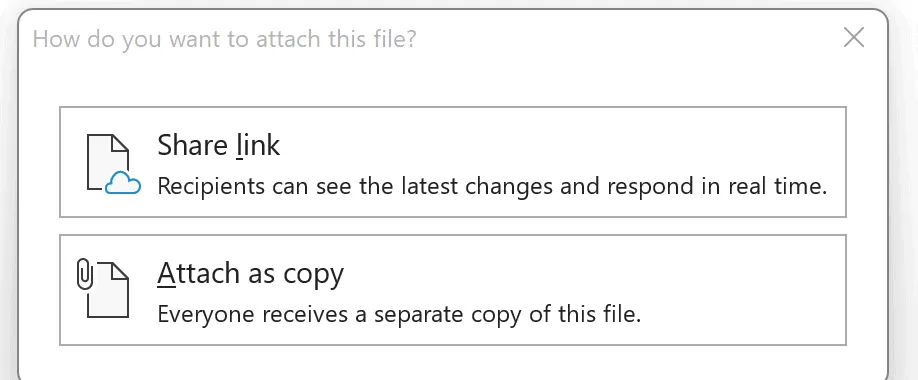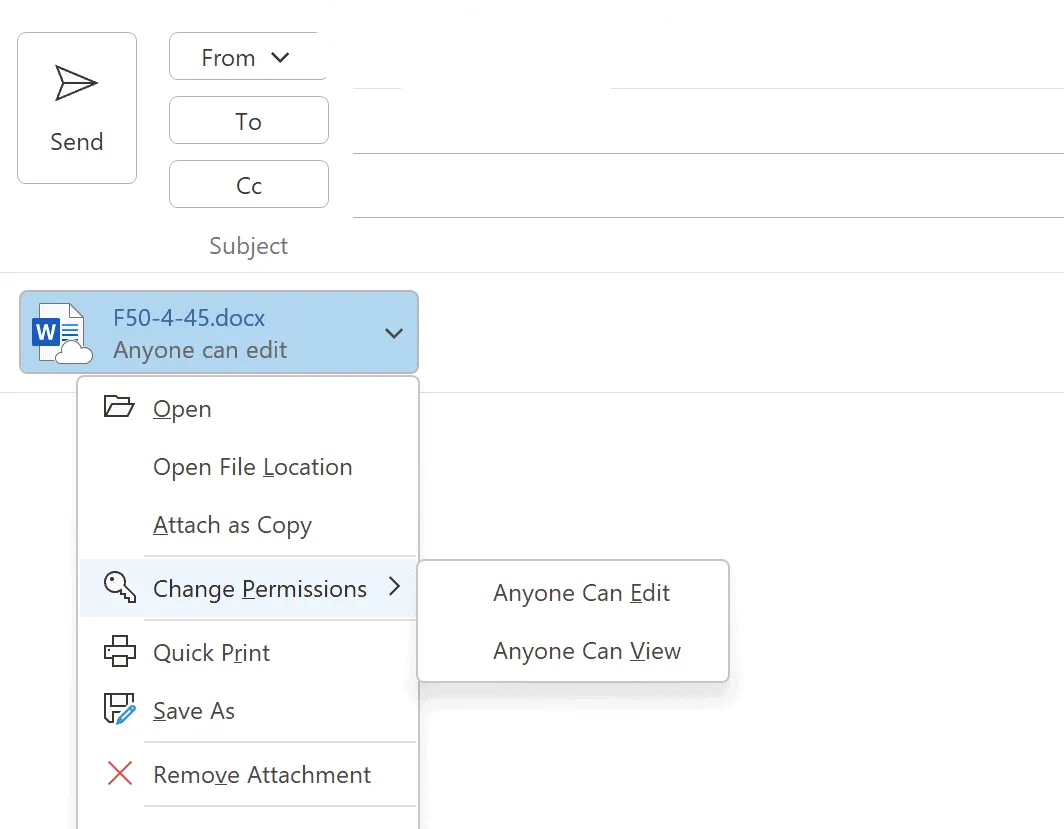Modernizing Collaboration: The Shift from Email Attachments to Shared Links in Outlook
June 20, 2024

If you’re like most busy professionals, you send emails with attachments every day. That’s the way business has always been done. But now that online file storage has become commonplace, it may be time to consider sending links instead of email attachments, at least in some cases.
Let’s look at why many companies are switching to sending links instead of email attachments as well as some of the hidden challenges.
Reasons to send links instead of email attachments
1. Ease of Collaboration
You’ve probably had the experience of sending out a document for review and then having to chase down colleagues for feedback. Once you finally receive responses, you may spend hours trying to puzzle together the edits to create one cohesive piece, only to have to resend the document for round two…and three…and four…until you finally agree on the final version.
By instead sharing the link to a SharePoint or OneDrive file, all contributors are working from the same document stored in a central location. Microsoft 365 even allows for online editing of shared content without opening the desktop (Word or Excel) application. When one person edits the file, everyone else can see those changes in real time, making collaboration significantly faster and easier.
2. Reduce mailbox / storage / download size
When you send an email attachment, everyone gets a copy. When large files are sent, storage space can be consumed quickly. Consider the file size times the number of recipients times the number of revisions. That’s usually not a problem at the organizational level, but may pose a bandwidth issue for mobile users or a storage issue for laptops. tablets and other small data storage devices.
3. Revoke / limit access
Once you’ve sent an email attachment, it’s out of your control. The recipient can copy it, print it, forward it, etc. By sending a link, you can change permissions at any time and even revoke access automatically after a specified time period. The organization sets global permissions, which users can fine-tune for each item sent.
Hidden challenges of using links
While sending links has a lot of advantages, there are also some challenges to consider.
- When collaborators are outside of your organization, your IT administration team may not allow access to secure internal SharePoint / OneDrive file storage areas. Microsoft 365 has multiple layers of security, and all must be “allowed” for the file to be accessed.
- Links won’t work without internet access. If employees are used to working on planes or in facilities without internet, they won’t be able to access the files.
- If someone moves or deletes the file, everyone loses access.
- It may sound silly, but many users are accustomed to searching their Outlook inbox by attachments and forget the file came in as a link instead. Plan to spend some time resending emails or retraining users until they get the hang of looking for emails a different way.
How to send links in Outlook
You can change your default settings in Outlook to decide whether to send links, copies or to choose every time.

If you want to choose every time, when you “add attachment” a box will pop up.

If you then decide to “share link” you can further edit permissions of the link.

Keep in mind that individual users are always constrained by organizational global settings. Has your company switched to sending links? What has been your experience? We’d love to hear!
Considering Microsoft 365?
If you’re not yet using Microsoft 365, we have services available to help clients:
- Select the appropriate Microsoft 365 licensing plan
- Get set up with the right security and permissions
- Migrate your emails and files from other systems
- Provide ongoing Microsoft 365 technical support
If you want to explore your options, please reach out to our team by via email at support@skratsch.com or by calling 1.313.284.5656
Tags: business

Editor
Steve is a Software and Cloud Engineer, Content Creator, and Innovation Enthusiast. He is open to collaborating on projects that match his skills, which include .NET Framework/Core, C#, APIs, RESTful Services, SQL Databases, and Azure.